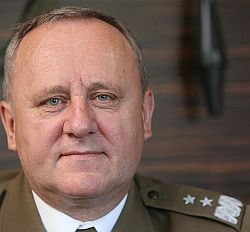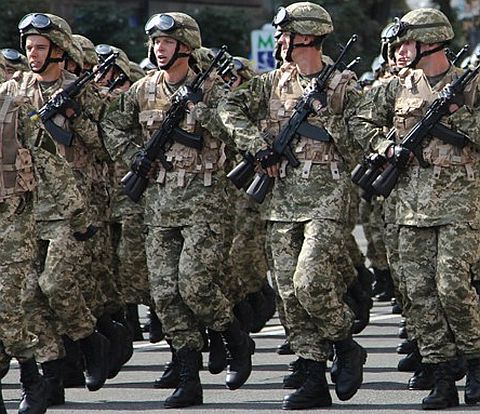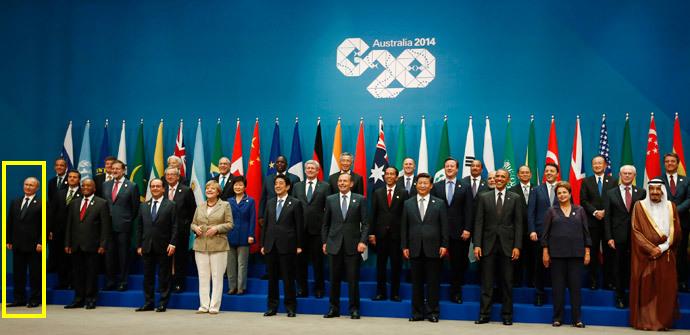NATO has nominated former commander of the National Defence Academy, General Boguslaw Pacek to be an advisor on the reform of Ukraine’s military education system.
On Friday, General Pacek met in Kiev with Ukraine’s First Deputy Minister of Defense Ivan Rusnak.
Boguslaw Pacek directs the work of the DEEP program, which brings together experts from a dozen countries, including USA, Germany, Great Britain, Slovakia, the Czech Republic and several Polish military academies.
The first stage of the DEEP program was implemented from March 2013 in four cities of Ukraine: Lviv, Kharkiv, Sevastopol and Kyiv. 29 out of 34 planned projects were successfully completed. Program participants were lecturers of Ukraine’s military academies.
The deputy head of the Ukrainian Defence and General Pacek agreed on actions under the second phase of the program, including preparation for the reform of the country’s military education system.

Born in 1954, Boguslaw Pacek graduated from elementary school and high school in Rypin, and went on to study philology at the University of Gdansk. After graduating, he worked for a year at his alma mater as a philologist.
During 1978-1979 he underwent training at the Felix Dzerzhinsky School of the Central Reserve Officers Training Centre WSW in Minsk Mazowiecki. In 1979 he was conscripted into professional military service and assigned to the Division of WSW in Gdansk, serving in amongst other areas the duty operations service . In 1985 he moved to the Department of WSW 7 Luzycka Assault Division in Gdansk. Three years later he was appointed deputy head of the Department of WSW 7 Coastal Defence Brigade.
In 1990, after the Military Internal Service was stripped and the Military Police created, he was appointed deputy commander of the Military Police Department in Gdansk. In the same year he earned his PhD. In 1991 he was appointed commander of the Military Police Department in Gdansk. In 1996 he was nominated for the post of commander of the Military Police Branch in Bydgoszcz. A year later he became the commander of the Military Police Branch of the Capital Garrison in Warsaw , which was renamed Sznajd Francis Military Police Branch Mazowiecki in 2000.
On August 1, 2003 he took the position of Commander in Chief of the Military Police. Polish President Aleksander Kwasniewski promoted him to Brigadier General (15 August 2003) and Major General (15 August 2005).
On October 5, 2006 he handed his duties as the Chief of Military Police Brigade over to General Jan Żukowski, and was then transferred to the defence ministry’s reserve. He was later appointed by Alexander Szczyglo to the position of attorney to supervise the construction of the campus of the University of Defence.
After the change of government in 2008, he was transferred to the Operational Command (OHQ) in Mont Valérien and appointed to the position of Deputy Commander of the EUFOR operation in Chad and the Central African Republic.
In 2009 he earned a postdoctoral degree in military science at the National Defence Academy.His doctoral dissertation was titled Military Police of the Polish Armed Forces in Peacekeeping and Stabilization Missions.
In 2010, he was appointed to the position of Assistant Chief of the General Staff and the Minister of National Defence Counsel.
On August 20, 2012 he was named by the Ministry of National Defence Commandant-Rector of the National Defense Academy in Warsaw-Rembertów.
In June 2014, after reaching the age of 60, he retired, returning to civilian life and stepped down as rector-commander of the Academy of National Defense. He stayed at the Academy of National Defense as a civilian lecturer at the Department of National Security. He currently is an advisor to the Minister of National Defense.
On June 30, 2014 he received a professorship from Poland’s President.








